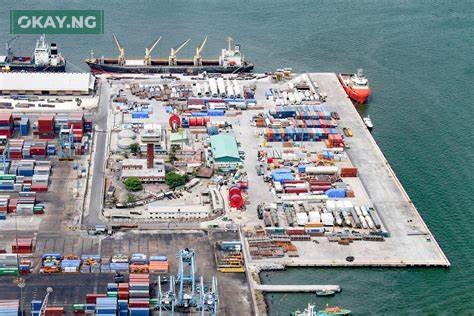A looming crisis threatens to paralyze operations at Lagos ports, as maritime workers announce plans to withdraw their services due to the Federal Government’s prolonged neglect of the rapidly deteriorating quay apron. The Maritime Workers Union of Nigeria (MWUN) has raised alarm over the hazardous conditions at Tin Can Island and Five Star Logistics Terminal, citing severe safety risks and declining productivity.
“The quay apron is nothing to write home about. If urgent action is not taken, our members may soon be unable to work in that terminal due to the poor conditions,” Dr. Adeyanju Adewale, President-General of MWUN, stated during a press briefing in Apapa. His words, laced with frustration, underscore the dire situation that has been festering for years.
Adewale’s critique is sharp, pointing to the Nigerian Ports Authority (NPA) for what he perceives as a four-year abandonment of critical infrastructure. “Despite changes in government, port management issues remain largely unaddressed,” he lamented. “We have been discussing rehabilitation for years, yet no tangible progress has been made.”
The NPA, under the previous leadership of Mohammed Bello-Koko, had assured stakeholders that a major rehabilitation contract was awarded. However, Adewale questions the project’s progress, highlighting the stark contrast between those promises and the current state of the ports. “The ports remain outdated despite promises made last year,” he asserted.
Comparing Nigeria’s ports to those in neighboring countries, Adewale highlighted the disparity, noting that even smaller ports in Cotonou, Benin Republic, boast superior infrastructure. “We pray that the president of this country will put his eyes on the ports so that we do not continue lagging,” he urged, emphasizing the urgent need for modernization to maintain regional competitiveness.
Read Also: Nigerian Ports Authority Secures 15% Tariff Increase After 30 Years, Sparks Debate
Beyond infrastructure concerns, Adewale also detailed MWUN’s achievements in improving workers’ welfare. The union has successfully secured a minimum wage of N200,000 for shipping workers and has consistently upgraded dockworkers’ conditions of service through the National Joint Industrial Council (NJIC). Additionally, Nigerian seafarers now enjoy a competitive welfare package, and NPA workers have received their highest pay increase in over two decades.
Efforts are also underway to provide long-overdue disengagement benefits to retired seafarers of the defunct Nigerian National Shipping Line (NNSL). Furthermore, MWUN has strengthened its global standing by aligning with the International Transport Workers’ Federation (ITF) and has shifted towards dialogue-based resolutions.
The union has also forged partnerships with key industry stakeholders, including NARTO and AMATO, to enhance maritime and haulage operations, and signed a memorandum of understanding (MoU) with the Joint National Transport Safety Committee of Nigeria (JNTSCN) to improve road haulage safety.
Imagine navigating a workplace where every step could lead to a fall, where the very ground beneath you is crumbling. This is the reality faced by maritime workers in these neglected terminals. The human cost of this neglect extends beyond mere inconvenience; it touches on the fundamental right to a safe working environment.
The potential shutdown of Lagos ports carries significant economic implications. Ports are the lifeblood of trade, and any disruption could trigger a ripple effect across the nation’s economy. The urgency of this situation cannot be overstated. As stakeholders await decisive action from the government, the question remains: will the cries of the maritime workers finally be heard, and will the necessary steps be taken to avert a crippling shutdown?












